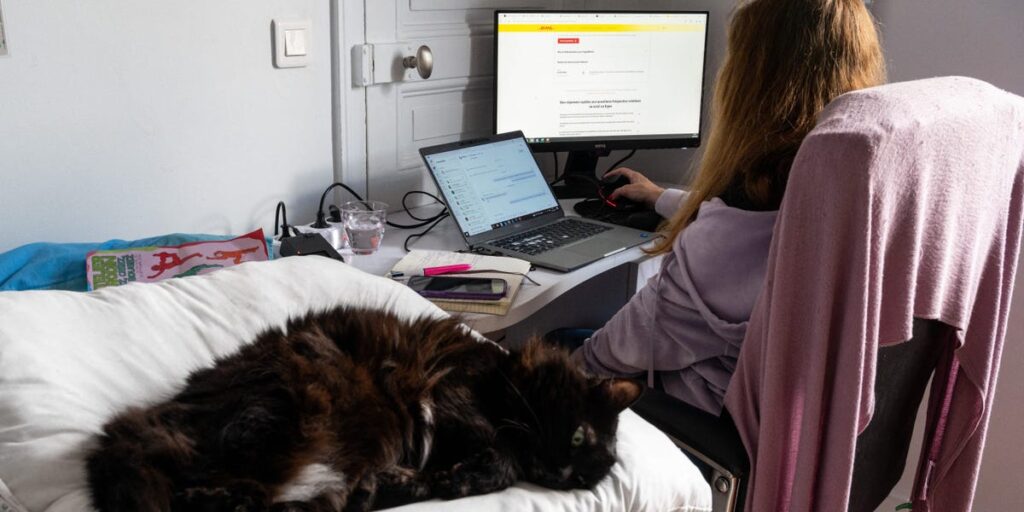- I have rheumatoid arthritis, which means my immune system attacks my joints.
- I treat it by depressing my immune system, which leaves me vulnerable to things like a common cold.
- I’ve chosen not to go back to work in an office to protect my health.
I was diagnosed with rheumatoid arthritis 10 years ago. So, while I was building my career, I was also learning how to control my condition.
My condition means my immune system attacks my joints, which results in debilitating pain throughout my body if left untreated. I never knew how many joints existed in the human body until they would all stiffen at once overnight.
To treat it, I have to suppress my immune system with medication, which I need just to physically get out of bed in the morning. I’ve also learned in this decade of dealing with my condition that I need to advocate for myself and my needs — and that includes at work, too.
I’m more vulnerable to catching upper respiratory illnesses
Because my immune system is suppressed, it means I’m more vulnerable to catching any bug that’s going around. Your 24-hour flu is my weeklong flu.
It’s been almost six years since my last upper respiratory infection, but I still can’t breathe as well as I used to. The sound of coughing makes me wince. Four upper respiratory infections in four years taught me to develop crippling anxiety as winter approaches, knowing that a deep, dry cough would arrive in January. What follows is two weeks of utter misery.
My last infection in 2019 left me with a lingering cough, only remedied by an inhaler months later. A month after that, I would contract one of the worst cases of strep throat I’ve ever had. Between the two, I was rendered ill for almost half the year.
This was my life before work-from-home policies took hold.
In 10 years of managing this disability, I’ve learned to speak louder. This translated well as I grew in my career. I became more assertive and spoke my mind when I thought we could do better. I also learned that my health is more important than my work, and I found ways to let go of the little things.
I asked to work from home when needed
Regardless of the work I’m tasked with, my own high standards dictate the final product. Once an A-student, always an A-student. Exceeding expectations regularly allowed me to build trust with my supervisors, which gave me the credibility to ask for accommodations when needed. This included avoiding the office when my risk of infection was higher and making up work so that I didn’t use all of my PTO being sick.
I valued my relationship with my supervisor and felt lucky to have a boss I could talk to about my health issues. When I was laid off one year ago, I found myself in a sea of competition. The majority of job listings were hybrid or 100% in-office, and suddenly, I lacked the rapport that had protected me for so many years.
I was immediately faced with a question I’ve always struggled with: When is the right moment to share that I’m disabled? Several times in my life, I’ve waited for someone to notice — blending in until I can’t. But in a competitive job search, the answer wasn’t clear.
Not only was I afraid of losing out to competition because of a chronic illness, but I knew that my body couldn’t handle an annual upper respiratory infection in perpetuity. I needed an employer who would see me as a whole human being, and deciphering that in an interview process felt like an impossible task with very high stakes.
When I was presented with freelance opportunities, I took the leap. One year after my layoff, I am able to take care of myself first. Every day, I can wake up, listen to my body, and go from there on what the rest of the day looks like — something I wish everyone could do.
I’ve learned never to say never. So, there is certainly a chance that I could wind up back in a full-time role again, and I could wind up in an office again. I can legally demand accommodations anywhere I work. But if you’re asking whether I want to fight those battles, the answer is unequivocally no. What companies either fail to realize or don’t care to correct is that strict in-office policies keep many talented professionals out, including disabled people. And this particular talent is not looking to come back anytime soon.
Read the full article here
















